
Gacuriro: Kigali’s Serene Haven of Modernity and Culture
Nestled in the heart of Kigali, Gacuriro is an elegant and tranquil neighborhood that offers a blend of modernity and cultural charm. Known for its well-planned layout and lush green surroundings, it provides a refreshing escape from the bustling city life. Gacuriro is dotted with upscale residences, chic cafés, and serene parks, making it a perfect spot for leisurely strolls and relaxation. Gacuriro is not just about serene landscapes; it is also a hub of cultural experiences. Visitors can explore local markets, where vibrant fabrics and handmade crafts showcase Rwanda's rich heritage. The neighborhood is also home to several art galleries and cultural centers that offer a glimpse into the country's artistic soul. For those who enjoy outdoor activities, Gacuriro offers ample opportunities. From scenic jogging paths to well-maintained sports facilities, there is something for everyone. The neighborhood's elevated location provides stunning views of Kigali's skyline, especially at sunset, making it a photographer's paradise.
Local tips in Gacuriro
- Visit the local markets early in the morning for the freshest produce and best selection of handmade crafts.
- Take a leisurely stroll through the neighborhood parks to enjoy the lush greenery and peaceful atmosphere.
- For the best photo opportunities, head to elevated spots in Gacuriro at sunset to capture the stunning views of Kigali’s skyline.
- Explore the art galleries and cultural centers to immerse yourself in Rwanda’s rich artistic heritage.
- Try the local cafés for a taste of Rwandan coffee and delightful pastries.
Gacuriro: Kigali’s Serene Haven of Modernity and Culture
Nestled in the heart of Kigali, Gacuriro is an elegant and tranquil neighborhood that offers a blend of modernity and cultural charm. Known for its well-planned layout and lush green surroundings, it provides a refreshing escape from the bustling city life. Gacuriro is dotted with upscale residences, chic cafés, and serene parks, making it a perfect spot for leisurely strolls and relaxation. Gacuriro is not just about serene landscapes; it is also a hub of cultural experiences. Visitors can explore local markets, where vibrant fabrics and handmade crafts showcase Rwanda's rich heritage. The neighborhood is also home to several art galleries and cultural centers that offer a glimpse into the country's artistic soul. For those who enjoy outdoor activities, Gacuriro offers ample opportunities. From scenic jogging paths to well-maintained sports facilities, there is something for everyone. The neighborhood's elevated location provides stunning views of Kigali's skyline, especially at sunset, making it a photographer's paradise.
Iconic landmarks you can’t miss
Kigali Genocide Memorial
Explore the Kigali Genocide Memorial, a poignant museum dedicated to the memory of victims and the resilience of Rwanda's spirit.
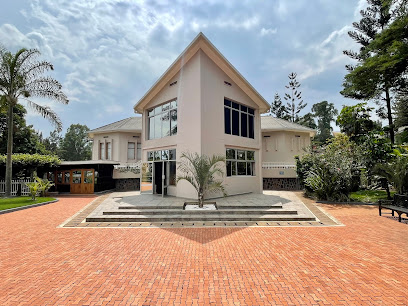
Inema Arts Centre
Discover the vibrant world of Rwandan art at Inema Arts Centre, a cultural gem in Kigali showcasing contemporary creativity and local talent.
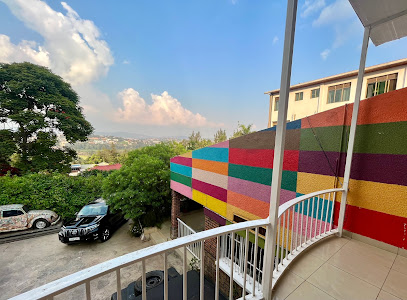
Belgian Peacekeepers Memorial
Explore the Belgian Peacekeepers Memorial in Kigali, a moving tribute to the bravery of soldiers during the Rwandan Genocide, promoting peace and remembrance.
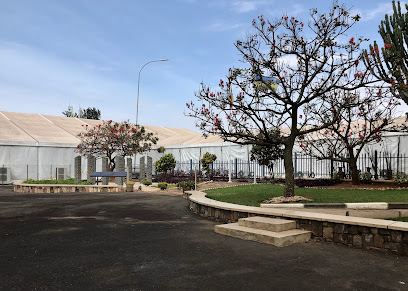
Artisthenry
Discover the vibrant world of tattoo art and local creativity at Artisthenry in Kigali, a unique destination for art lovers and adventurous travelers.
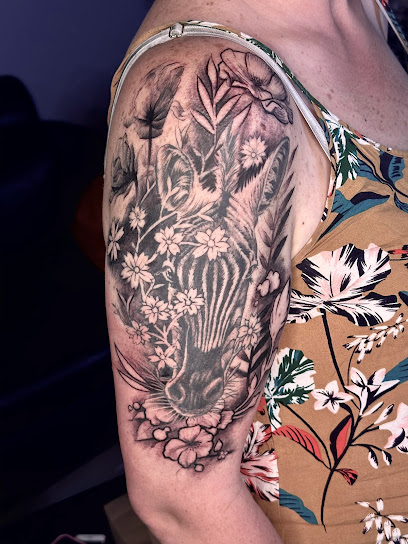
Niyo Arts Gallery
Explore the vibrant creativity of Rwanda at Niyo Arts Gallery, where local artistry meets cultural heritage in an inspiring setting.
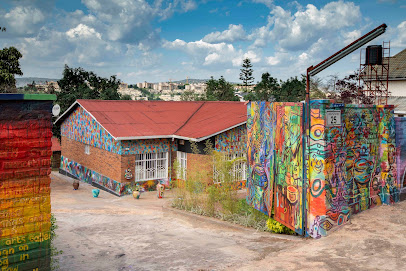
Campaign Against Genocide Museum
Discover the Campaign Against Genocide Museum in Kigali, a profound space of remembrance and education on Rwanda's path to healing and resilience.
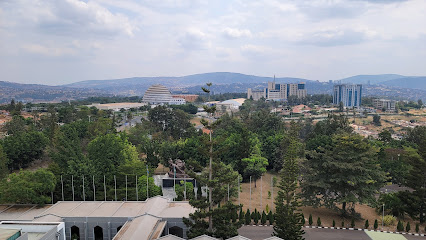
Sunday Park
Discover the beauty of Sunday Park in Kigali, a perfect venue for weddings, picnics, and outdoor activities amidst lush greenery.
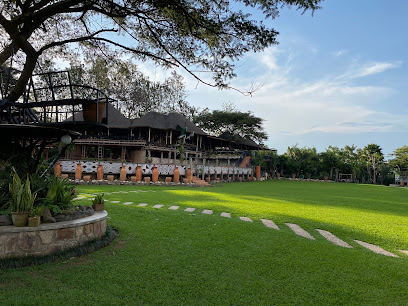
Cultural Green square Park
Discover Kigali's Cultural Green Square Park, a serene urban oasis perfect for relaxation, cultural immersion, and stunning views of Rwanda's vibrant capital.
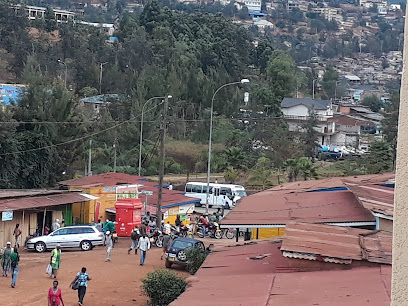
Vision City
Discover the modern elegance of Vision City in Kigali, where comfort meets breathtaking views in the heart of Rwanda's capital.
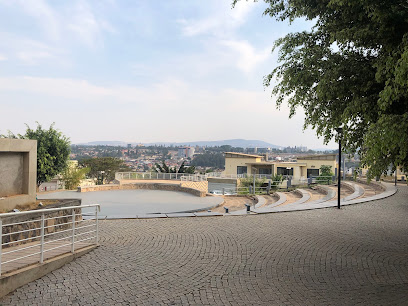
Kigali Ink
Discover Kigali Ink, a premier tattoo shop in Rwanda's capital, offering skilled artistry, hygiene, and a welcoming atmosphere for your body art journey.
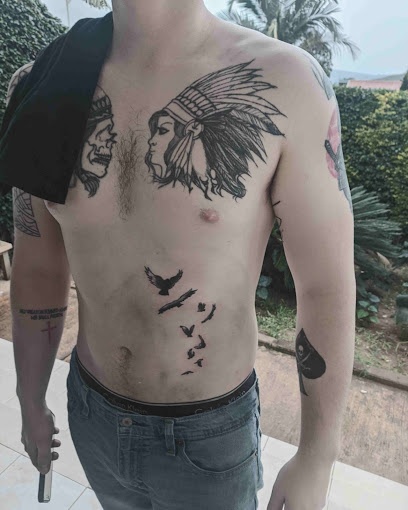
Ivuka Arts
Discover the heart of Rwandan creativity at Ivuka Arts, a captivating art gallery and studio in Kigali showcasing local talent and culture.
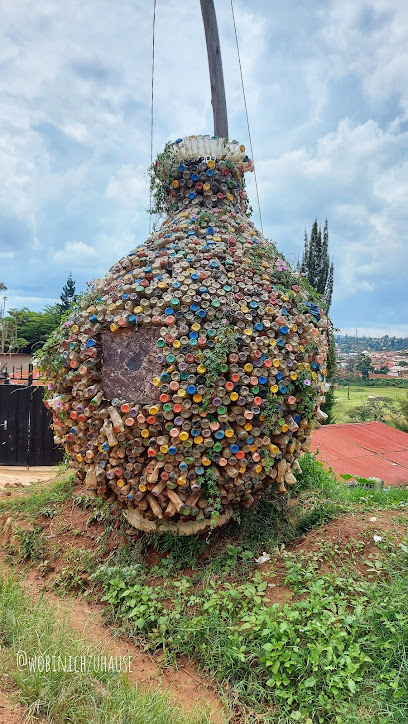
Highlands Apartments Gacuriro
Discover comfort and tranquility at Highlands Apartments Gacuriro, a serene retreat in the heart of Kigali, perfect for tourists seeking relaxation.

Kigali Pottery Collections, New store Kacyiru
Explore the vibrant Kigali Pottery Collections, a treasure trove of Rwandan artistry and culture in Kacyiru, perfect for unique souvenirs and gifts.
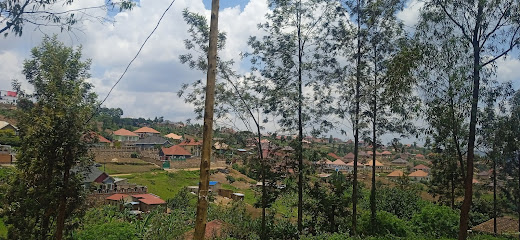
Garden Estate, Kinyinya
Discover tranquility and comfort at Garden Estate, Kinyinya—your perfect base to explore the wonders of Kigali and Rwanda's breathtaking landscapes.
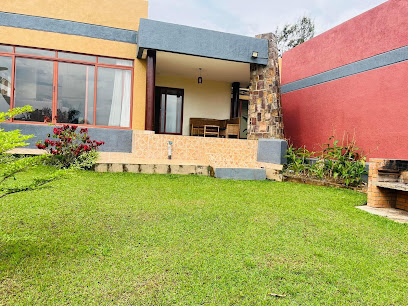
Kinyinya Sector Office
Explore the Kinyinya Sector Office in Kigali to understand local governance and engage with the vibrant community spirit of Rwanda.
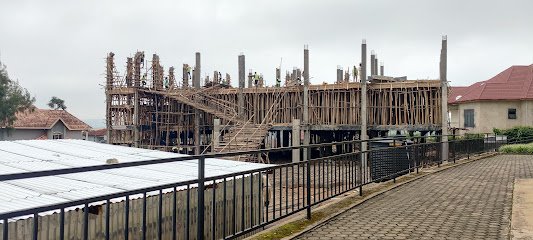
Unmissable attractions to see
Kigali Genocide Memorial
Explore the Kigali Genocide Memorial, a poignant tribute to resilience and remembrance of the Rwandan Genocide, offering deep historical insights for every visitor.
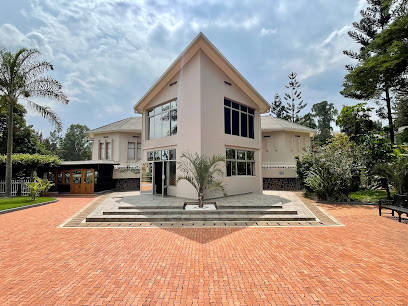
Kandt House Museum
Discover Rwanda's rich history at Kandt House Museum in Kigali, showcasing the life of Dr. Richard Kandt and the cultural heritage of the nation.
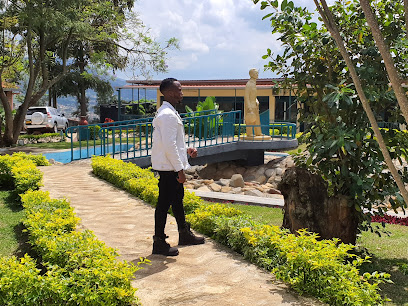
Ivuka Arts
Explore Ivuka Arts in Kigali for a unique glimpse into Rwanda's vibrant art scene, showcasing local talent and creativity in a welcoming atmosphere.
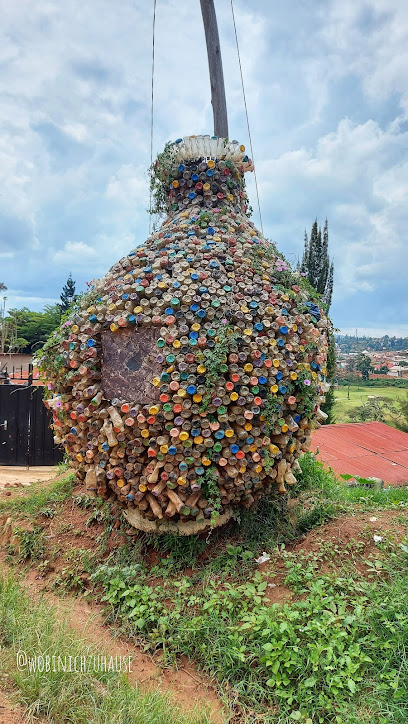
La Cabane Africaine
Experience the heart of Rwandan culture at La Cabane Africaine, a vibrant hub for art, food, and community in Kigali.
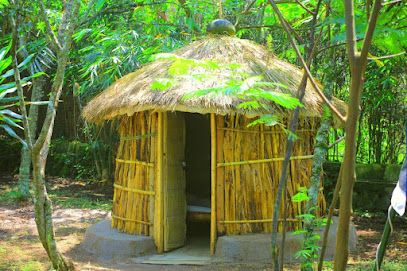
Be Ambassador of Hope (BAHO CENTER)
Discover the BAHO Center in Kigali: a unique tourist attraction dedicated to hope, empowerment, and the inspiring journey of Rwanda's communities.
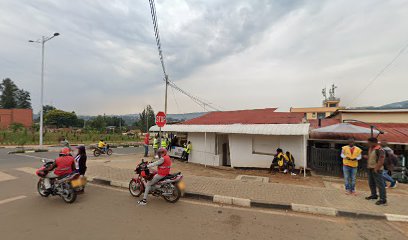
Essential places to dine
Mocha Café Rwanda
Discover authentic Middle Eastern cuisine at Mocha Café Rwanda in Kigali – where flavor meets hospitality.
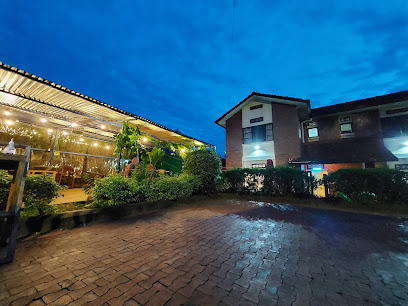
Kigali Fast Food
Discover Kigali Fast Food: A vibrant restaurant offering local Rwandan dishes and international favorites in the heart of Kigali.
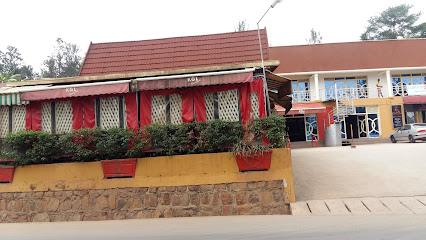
Kultura Fine Dining Restaurant
Experience fine dining at Kultura in Kigali, where Rwandan flavors meet modern culinary artistry in an elegant setting.
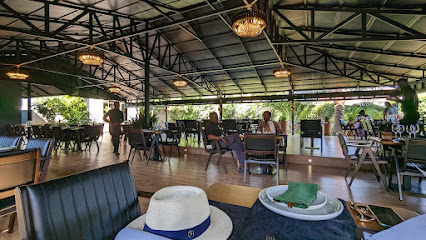
Bell Tower Chinese Restaurant
Savor authentic Chinese flavors at Bell Tower Chinese Restaurant in Kigali - A must-visit culinary destination for food lovers.
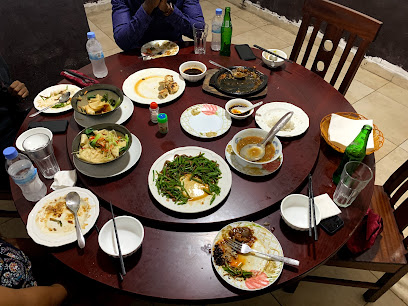
Sizzling Plates Restaurant
Discover authentic Asian flavors at Sizzling Plates Restaurant in Kigali - where delicious food meets exceptional service.
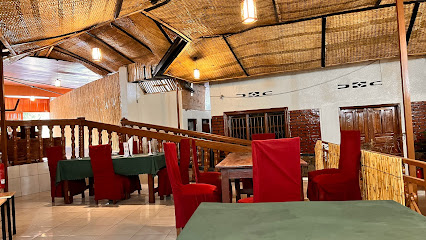
Marco's - Italian Restaurant
Discover the authentic taste of Italy at Marco's Italian Restaurant in Kigali, where every dish tells a story of culinary tradition.
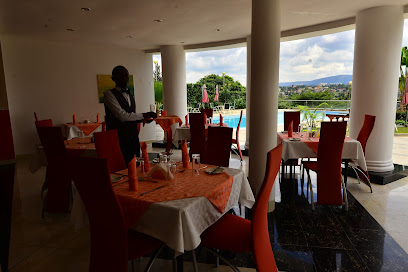
Destiny Bar & Restaurant
Experience the best of Rwandan cuisine at Destiny Bar & Restaurant in Kigali - where flavor meets hospitality in every dish.
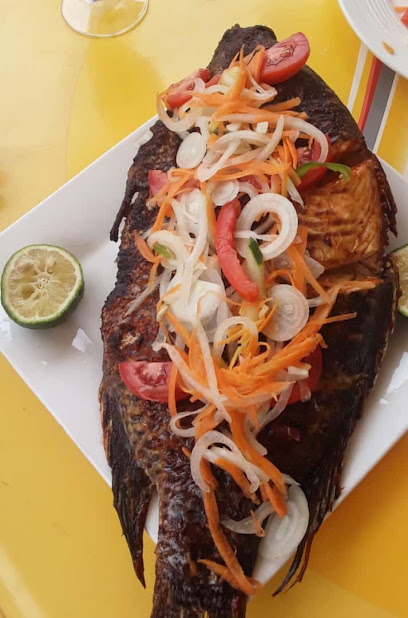
Oscar Restaurant
Experience the best of Rwandan cuisine blended with international flavors at Oscar Restaurant in Kigali.
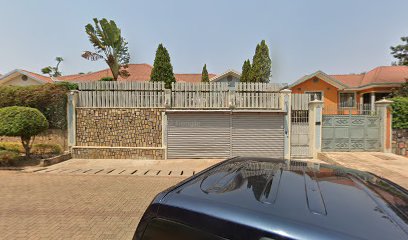
Salama restaurant
Discover authentic Rwandan flavors at Salama Restaurant in Kigali, where tradition meets modern culinary artistry.
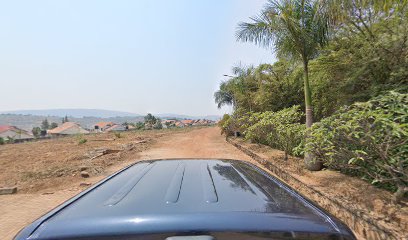
Car-Wash Bistro (El Patron Cafe & Grill)
Discover the vibrant flavors of Rwanda at Car-Wash Bistro (El Patron Cafe & Grill), where culinary delights meet warm hospitality.
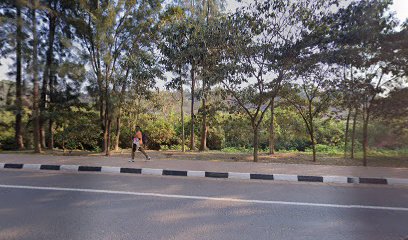
Markets, malls and hidden boutiques
House of Tayo
Explore the vibrant world of Rwandan fashion at House of Tayo in Kigali, where unique designs meet cultural heritage.
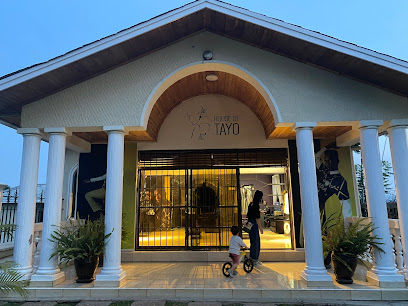
The Shop
Discover unique Rwandan crafts at The Shop in Kigali, where local artistry meets heartfelt souvenirs, perfect for every traveler.
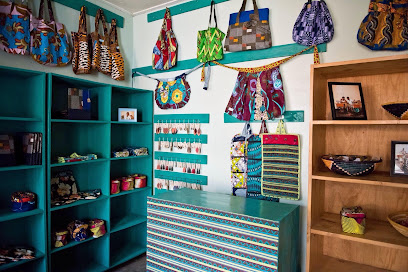
Muhinde Shop
Explore the vibrant flavors of Kigali at Muhinde Shop, your go-to supermarket for local and international products.
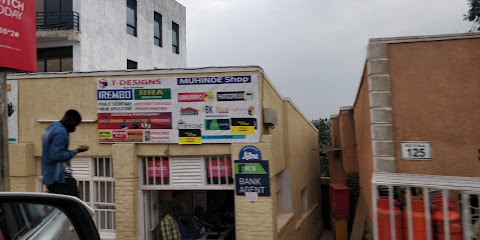
Tic-Tac-Toe (Gift Shop)
Explore Tic-Tac-Toe Gift Shop in Kigali for unique souvenirs and local crafts, reflecting Rwanda's rich culture and artistry.
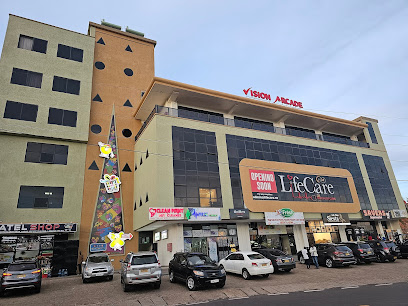
Miniso Branch
Explore Miniso Branch in Kigali for trendy gifts and unique souvenirs that capture the essence of Rwanda's vibrant culture.
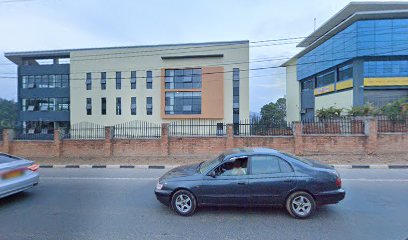
Toddle Care - Boutique
Discover Toddle Care - Boutique in Kigali, where quality baby and children's products meet exceptional service in a charming environment.
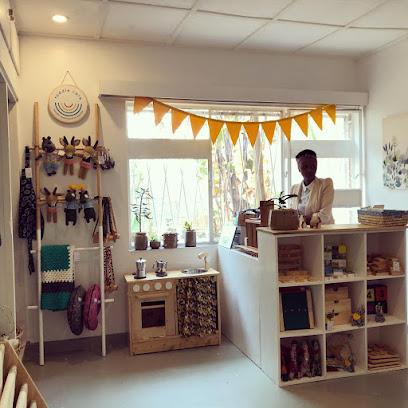
Sahorn Shop
Discover unique fashion accessories that blend contemporary style with Rwandan craftsmanship at Sahorn Shop in Kigali.

AK High Class Fashion
Explore Kigali's fashion scene at AK High Class Fashion, where style and quality meet in a chic shopping experience.

Kaymu Rwanda
Explore Kaymu Rwanda, a vibrant general store in Kigali offering unique local crafts, souvenirs, and everyday essentials for an authentic shopping experience.
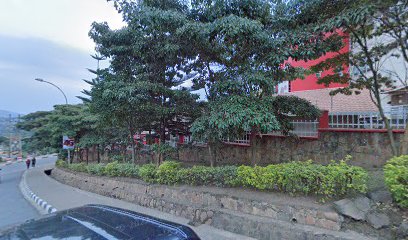
Maliza Shop
Explore Kigali's Maliza Shop for a diverse selection of local and international products in a vibrant supermarket setting.
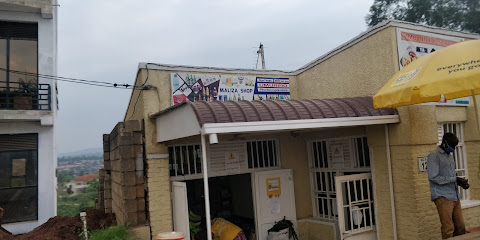
Essential bars & hidden hideouts
Pili Pili
Experience the vibrant flavors of Kigali at Pili Pili, where delicious grilled dishes and a welcoming atmosphere await every visitor.
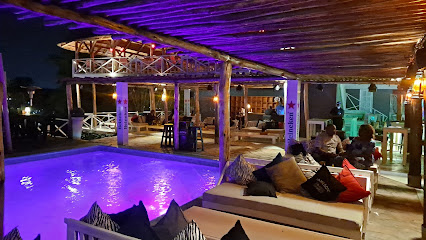
KIGALI LOUNGE
Discover Kigali Lounge: Where exquisite drinks meet vibrant nightlife in Rwanda's capital, providing an unforgettable experience for visitors.
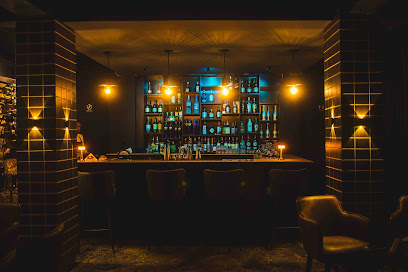
Best Corner
Discover the vibrant flavors of Rwandan cuisine at Best Corner Grill, a cozy spot in Kigali offering delicious grilled dishes at great prices.
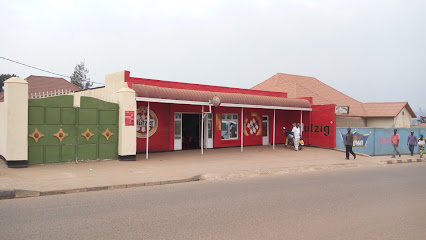
LUZIORA RESTO
Discover the vibrant nightlife at LUZIORA RESTO, Kigali's premier bar offering a lively atmosphere, diverse drinks, and a taste of Rwandan hospitality.
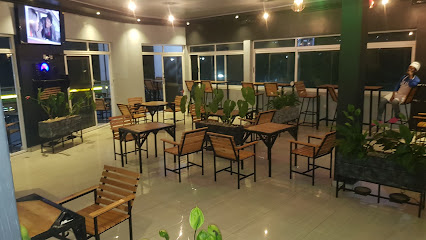
Destiny Bar & Restaurant
Experience the vibrant culinary scene of Kigali at Destiny Bar & Restaurant, where delicious grilled dishes meet a welcoming atmosphere.
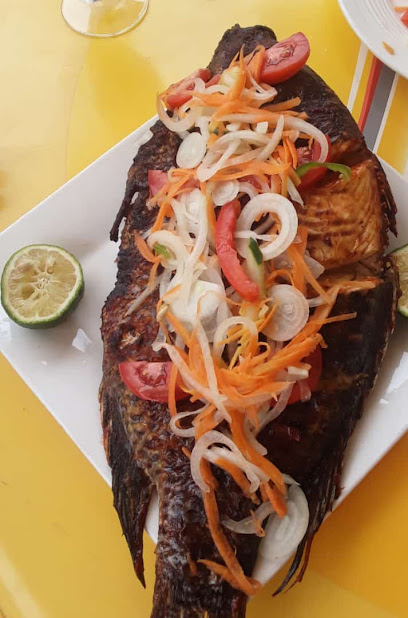
Le Balcon Lounge & Sports Bar
Discover a vibrant culinary experience at Le Balcon Lounge & Sports Bar, where local flavors and lively entertainment await in Kigali.
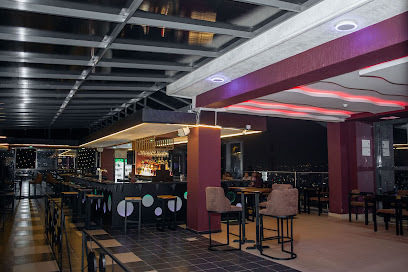
Bar & Resto
Experience the vibrant atmosphere and local flavors at Bar & Resto in Kigali, a perfect spot for relaxation and socializing.

Car-Wash Bistro (El Patron Cafe & Grill)
Discover a vibrant culinary experience at Car-Wash Bistro (El Patron Cafe & Grill) in Kigali, where local flavors meet a lively atmosphere for an unforgettable dining adventure.
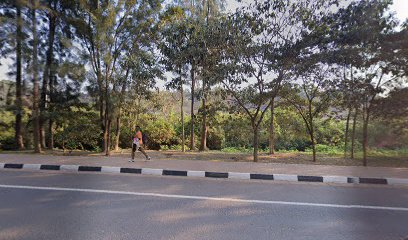
oasis
Discover a tranquil oasis in Kigali, where refreshing drinks and vibrant ambiance await you in the heart of Rwanda.
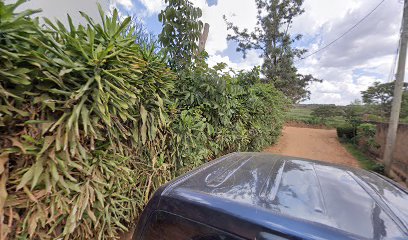
Felix business group
Discover the vibrant atmosphere of Felix Business Group, a tiki bar in Kigali offering tropical cocktails and a lively ambiance for an unforgettable experience.

Local Phrases
-
- HelloMuraho
[moo-rah-hoh] - GoodbyeMurabeho
[moo-rah-beh-hoh] - YesYego
[yeh-goh] - NoOya
[oh-yah] - Please/You're welcomeKubaza
[koo-bah-zah] - Thank youMurakoze
[moo-rah-koh-zeh] - Excuse me/SorryNdasaba
[ndah-sah-bah] - How are you?Amakuru?
[ah-mah-koo-roo] - Fine. And you?Ni meza. Na wewe?
[nee meh-zah. nah weh-weh] - Do you speak English?Waba usoma icyongereza?
[wah-bah oo-soh-mah ee-chong-eh-reh-zah] - I don't understandNtazi
[ntah-zee]
- HelloMuraho
-
- I'd like to see the menu, pleaseNshaka kubona ijambo ry'ibimenyetso, kubaza
[n-shah-kah koo-boh-nah ee-jahm-boh ree-ee-bee-meh-nyet-so, koo-bah-zah] - I don't eat meatSiyo kuryama
[see-yoh koo-ryah-mah] - Cheers!Mwaramutse!
[m-wah-rah-moot-seh] - I would like to pay, pleaseNshaka kubyirinda, kubaza
[n-shah-kah koo-byee-rin-dah, koo-bah-zah]
- I'd like to see the menu, pleaseNshaka kubona ijambo ry'ibimenyetso, kubaza
-
- Help!Ubutabera!
[oo-boo-tah-beh-rah] - Go away!Jya mubire!
[jah moo-bee-reh] - Call the Police!Gukora telefoni kuri polisi!
[goo-koh-rah teh-leh-foh-nee koo-ree poh-lee-see] - Call a doctor!Gukora telefoni kuri dokotere!
[goo-koh-rah teh-leh-foh-nee koo-ree doh-koh-teh-reh] - I'm lostNdagutekereza
[ndah-goo-teh-keh-reh-zah] - I'm illNdi mabara
[ndee mah-bah-rah]
- Help!Ubutabera!
-
- I'd like to buy...Nshaka kugura...
[n-shah-kah koo-goo-rah] - I'm just lookingNkora ikinyamakuru
[n-koh-rah ee-kee-nya-mah-koo-roo] - How much is it?Ni iki giciro?
[nee ee-kee gee-chee-roh] - That's too expensiveIyi ni y'ingiriro
[ee-yee nee yeen-gee-ree-roh] - Can you lower the price?Wibaza wemere ibiciro?
[wee-bah-zah weh-meh-reh ee-bee-chee-roh]
- I'd like to buy...Nshaka kugura...
-
- What time is it?Saa ngapi?
[sah nah-gah-pee] - It's one o'clockNi saa ya rimwe
[nee sah yah reem-weh] - Half past (10)Saa munani na mirongo itanu
[sah moo-nah-nee nah mee-rohn-goh ee-tah-noo] - MorningUmugoroba
[oo-moo-goh-roh-bah] - AfternoonUmusore
[oo-moo-soh-reh] - EveningIgihe cy'umugoroba
[ee-gee-hee chee-oo-moo-goh-roh-bah] - YesterdayEjo
[eh-joh] - TodayEjo
[eh-joh] - TomorrowEjo
[eh-joh] - 1Rimwe
[reem-weh] - 2Kabiri
[kah-bee-ree] - 3Gatatu
[gah-tah-too] - 4Kane
[kah-neh] - 5Gatanu
[gah-tah-noo] - 6Gatandatu
[gah-tahn-dah-too] - 7Karindwi
[kah-reen-dwee] - 8Umunani
[oo-moo-nah-nee] - 9Icyenda
[ee-chyen-dah] - 10Icumi
[ee-choo-mee]
- What time is it?Saa ngapi?
-
- Where's a/the...?Ejo aho...
[eh-joh ah-hoh] - What's the address?Aho ni iki gitego?
[ah-hoh nee ee-kee gee-teh-goh] - Can you show me (on the map)?Wibaza wemere kundika (ku mutwe)?
[wee-bah-zah weh-meh-reh koon-dee-kah (koo moo-tweh)] - When's the next (bus)?Ejo iki ni iki bus?
[eh-joh ee-kee nee ee-kee boos] - A ticket (to ....)Igiciro (ku...)
[ee-gee-chee-roh (koo)]
- Where's a/the...?Ejo aho...
History of Gacuriro
-
Gacuriro, located in the eastern part of Kigali, is known for its scenic views and residential areas. Historically, this neighborhood was part of the larger Kinyarwanda Kingdom, which thrived in the region prior to colonial rule. The area played a significant role in the agricultural economy, with fertile lands supporting the cultivation of crops such as sorghum and beans, which were staples in the local diet.
-
During the colonial period in the early 20th century, Gacuriro was affected by land reforms that altered traditional land ownership systems. The Belgian colonial administration implemented policies that favored certain ethnic groups, leading to social stratification and tension. This laid the groundwork for future conflicts in Rwanda, as land disputes became a significant issue in the years leading up to the genocide in 1994.
-
Gacuriro, like many neighborhoods in Kigali, witnessed the horrors of the 1994 genocide against the Tutsi. Many residents were affected by the violence, with numerous killings occurring in the area. In the aftermath, Gacuriro became a part of the national reconciliation process, with memorials established to honor the victims and educate future generations about the events that transpired.
-
In the years following the genocide, Gacuriro has undergone significant transformation. The Rwandan government prioritized urban development as part of its reconstruction efforts. Infrastructure improvements, including roads and housing, have turned Gacuriro into a desirable residential area. The neighborhood has also been a focal point for community development initiatives aimed at fostering unity and healing.
-
Today, Gacuriro is a vibrant neighborhood that reflects Rwanda's cultural revival. The area hosts various community events, showcasing traditional music, dance, and art. This cultural renaissance is part of Rwanda's broader strategy to promote national identity and unity, drawing from the rich heritage of its diverse ethnic groups while focusing on a shared future.
Gacuriro Essentials
-
Gacuriro is accessible from various neighborhoods in Kigali. The most convenient way is by taxi or rideshare services such as Uber or Yego. For those coming from the city center, the journey takes around 20-30 minutes depending on traffic. Local buses also run routes to Gacuriro; however, they may require transfers and can be less direct.
-
Gacuriro is best explored on foot or by bicycle, as many local attractions are within walking distance. For longer distances, local buses and taxis are available. It’s advisable to use registered taxis or rideshare apps for convenience and safety. Bicycles can be rented from local shops, offering a great way to experience the neighborhood.
-
Gacuriro is generally considered safe for tourists, but it's wise to remain vigilant. Avoid walking alone at night, especially in poorly lit areas. Pay attention to your belongings in crowded places. While crime targeting tourists is infrequent, be cautious in the outskirts and less populated areas after dark.
-
In case of an emergency, dial 112 for police assistance or 111 for medical emergencies. Keep the contact information of your embassy or consulate handy. Local hospitals and clinics are available in Kigali, and it's recommended to have travel insurance that covers medical emergencies.
-
Fashion: Do dress modestly, especially in public places and around religious sites. Avoid revealing clothing. Religion: Do respect local customs; it’s polite to cover your head when visiting churches. Public Transport: Do offer your seat to the elderly and disabled. Don’t eat or drink on public transport. Greetings: Do greet locals with a friendly handshake and a smile. Eating & Drinking: Do sample local cuisine and accept food offered by locals. Don’t refuse hospitality, as it may offend your hosts.
-
To experience Gacuriro like a local, visit local markets for fresh produce and traditional Rwandan goods. Engage with residents, as they are often friendly and open to sharing stories about their culture. Participate in local events or community activities if possible. Try local coffee shops and restaurants to taste traditional Rwandan dishes. Familiarize yourself with Kinyarwanda greetings; locals appreciate when visitors make an effort to speak their language.
Trending Landmarks in Gacuriro
-
Kigali Genocide Memorial
-
Inema Arts Centre
-
Belgian Peacekeepers Memorial
-
Artisthenry
-
Niyo Arts Gallery
-
Campaign Against Genocide Museum
-
Sunday Park
-
Cultural Green square Park
-
Vision City
-
Kigali Ink
-
Ivuka Arts
-
Highlands Apartments Gacuriro
-
Kigali Pottery Collections, New store Kacyiru
-
Garden Estate, Kinyinya
-
Kinyinya Sector Office
Nearby Cities to Gacuriro
-
Things To Do in Nyamata
-
Things To Do in Muhanga
-
Things To Do in Ruhengeri
-
Things To Do in Kirundo
-
Things To Do in Nyagatare
-
Things To Do in Karongi
-
Things To Do in Kibuye
-
Things To Do in Butare
-
Things To Do in Rubavu
-
Things To Do in Gisenyi
-
Things To Do in Muyinga
-
Things To Do in Ngozi
-
Things To Do in Kayanza
-
Things To Do in Cibitoke
-
Things To Do in Mbarara






